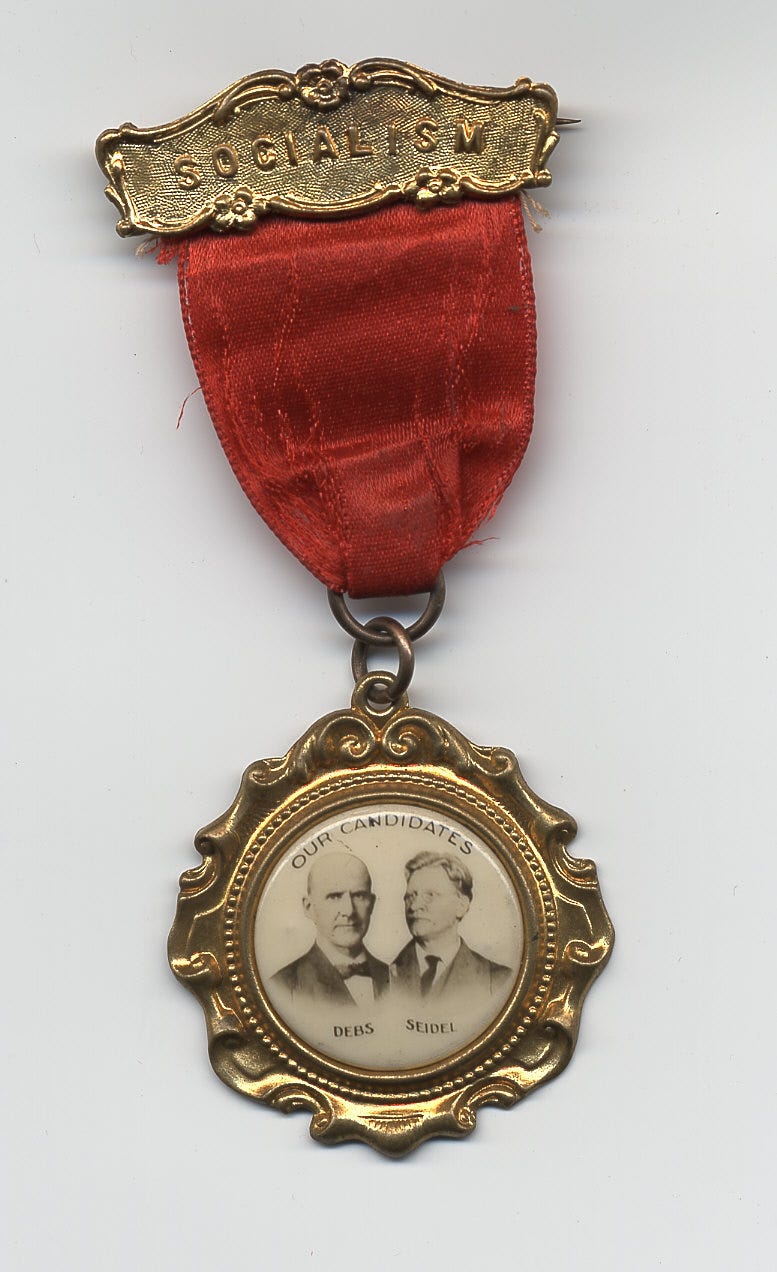The Older Eugene Debs Got, the More Radical He Became
Eugene Debs was not a man who abided by the “age is conservatizing” trope. Here he is in 1922 at age sixty-six, five years before his death, while visiting the site of a nineteenth-century massacre of American Indians by US troops:
Think of a race of people, having so much poetry and romance in their lives as the Indians had! It gleamed from their dazzling feathers and blankets. My sympathies have always been with the Indians and I know of no people on earth whose civilization was so criminally outraged as theirs. They called them savages and our histories paint them as barbarians. When the Indians killed two white men it was a massacre, but when white men killed a whole tribe of Indians it was only a battle.
The quote is from Socialist journalist David Karsner’s book Talks With Debs in Terre Haute, and it’s the first I’ve come across where Debs is speaking about the extermination of Native Americans.
Debs was always racially egalitarian for a white man of his time, but compare the words above to his appeal to white Pullman workers on strike in 1894:
It is not the colored man’s fault that he is black; it is not the fault of 6 million Negroes that they are here. They were brought here by the avarice, cupidity, and inhumanity of the white race. The father of our country was an owner of slaves. Bind down the white race for centuries and their intellects would become stunted, their refinement would disappear.
If we do not admit the colored man to membership, the fact will be used against us. I am not here to advocate association with the Negro, but I am ready to stand side by side with him to take his hand in mine and help him whenever it is in my power.
Sure, one quote was in private, the other in public. But the Pullman remarks are an accurate snapshot of Debs’s politics on the cusp of his socialist conversion: racially tolerant, but squeamish about “social equality,” in the era’s parlance.
And it’s not as if the passage of time between the first and second quote had propelled the US toward a more perfect union. By the 1920s, Jim Crow tyranny stalked the South, scientific racism populated the academy, and the Ku Klux Klan had been reborn. Yet the man who jettisoned the mainstream trade union movement in his late thirties, rejected US nationalism in his forties, and picked up prison abolition in his sixties, hadn’t just moved left, he’d come to vehemently oppose the racial hierarchies of the country.
Pretty remarkable.
Images of the Week
The Spokane Press, October 26, 1904, during Debs’s second run for president.
A campaign ribbon featuring the Socialist Party’s 1912 presidential ticket: Eugene Debs and former Milwaukee mayor Emil Seidel.
Housekeeping
If you missed last week’s post, where I discussed Debs’s views on everything from Oscar Wilde to the Russian Revolution, you can read it here.
In honor of Presidents’ Day next Monday, Jacobin will be republishing a Debs essay on why the US constitution is outdated. Keep an eye out for it.
Thanks again to all who have subscribed to Debs Dispatch — I’ve been really heartened by the response. And if you haven’t already, and feel so inclined, the button is below.





